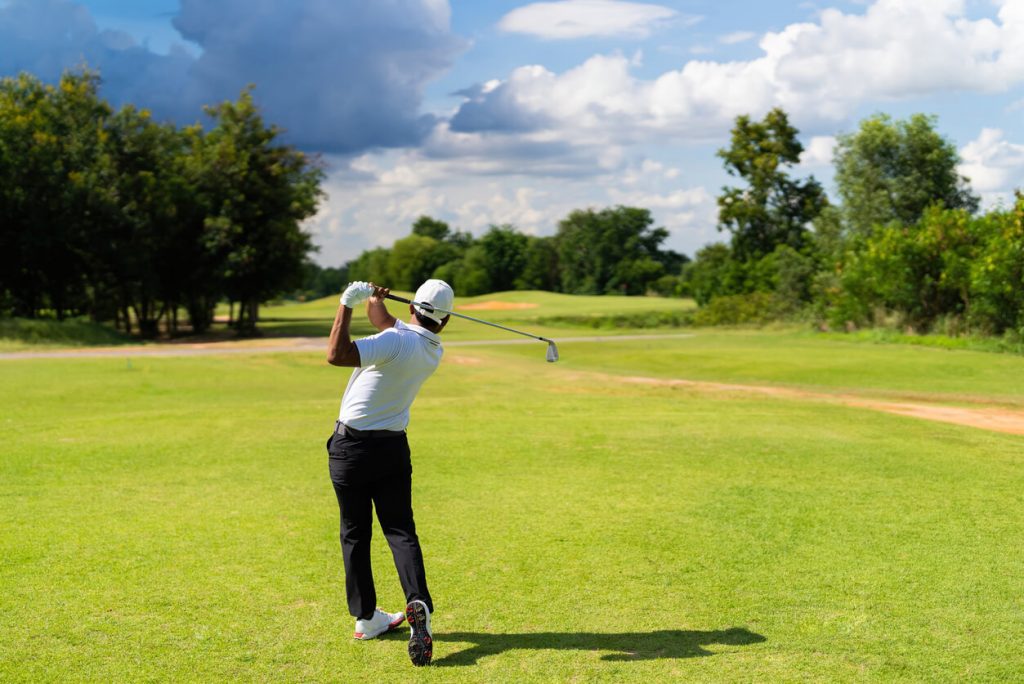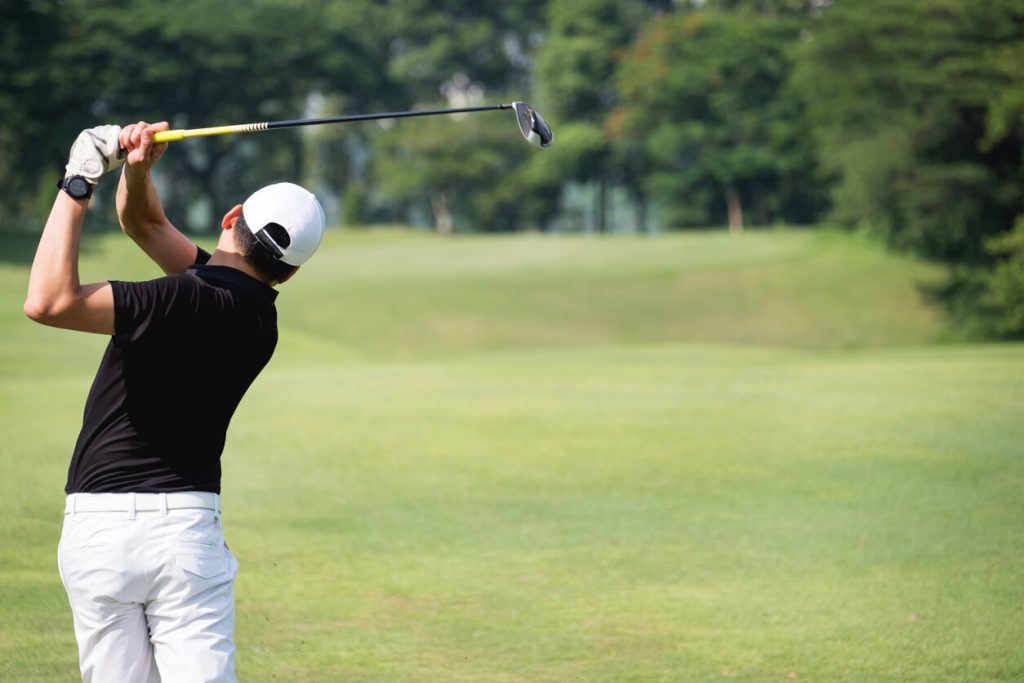Why do golfers shout fore?

According to the USGA, the word ‘fore’ originated in Scotland and is an abbreviated version of ‘before’ or ‘afore’. But ‘why do golfers shout fore?’ you might ask.
The USGA website goes on to state: “The old Scottish warning, essentially meaning ‘look out ahead’ most probably originated in military circles, where it was used by artillery men as a warning to troops in forward positions. Golfers as early as the 18th century simply adopted this military warning cry for use on the links.”
Why do golfers shout fore?

A likely derivation is related to the term ‘forecaddie’.
In years gone by, a forecaddie was employed to stand where
the ball might land to avoid losing them. Given that golf balls were originally
handmade and custom ordered, they represented a large expense, so forecaddies held
a key role in holding on to your prized golf balls.
Records dating back to the 17th century support this link, and ‘forecaddie’ was subsequently shortened to ‘fore’, presumably because it was quicker to shout ahead of an incoming golf ball.
Why do golfers shout fore? The Rules


The more modern-day Rules of Golf cover the need to shout ‘fore’ as early as Section 1.2a: Conduct Expected of All Players. This states that players are expected to play in the spirit of the game by “showing consideration to others.”
For example, by playing at a prompt pace, looking out for
the safety of others, and not distracting the play of another player. If a
player plays a ball in a direction where there might be a danger of hitting
someone, they should immediately shout a warning, such as the traditional
warning of “fore”.
However, it also states that “there is no penalty under the Rules for failing to act in this way, except that the Committee may disqualify a player for acting contrary to the spirit of the game if it finds that the player has committed serious misconduct.”
And herein lies a problem, you could say. Golfers are expected to shout ‘fore’ if there’s even the remotest chance of hitting someone, but the lack of a set penalty can lead to a multitude of excuses—for amateurs, at least.


Golfers will plead that they lost sight of the ball, didn’t
realise they could reach a certain distance, weren’t aware there was another
group on another hole, or were maybe just too embarrassed by their poor shot—all
of which would be fairly irritating if you’re the person on the wrong end of a Pro
V1 that hits you mid-flight.
There’s absolutely no excuse for the professionals, though, particularly at the very top of the game where you’ve got caddies and marshals.
We do sometimes have the occasional example where a pro might
not shout in the hope it’ll stop their ball from running into more trouble, or where
they might even aim to hit one into the grandstand, knowing it’ll give them a
free drop from a more preferable position.
Some players, like Justin Thomas and Rickie Fowler, for example, are able to pull off an amusing point of the arm to signal a wide shot, and generally, there seems to be less public shaming of players who can’t open their mouths in time.
Fore controversy at the 2019 Open Championship
However, one of the more public fall-outs came at the 2019 Open when Bob MacIntyre did the unthinkable and called out his playing partner, Kyle Stanley, at Royal Portrush.
The Scot was playing in his first Open when Stanley hit a
wide one off the 17th tee during the second round, and the ball hit
and bruised the hand of his caddy’s mother. According to MacIntyre, there was
no shout of ‘fore’.
He told the press at the time: “We’re shouting as it’s coming into the crowd, and he’s just standing watching it. People don’t have enough time to react after we shout. It hits my caddy’s mom. And so I told them how it was. I said I wasn’t happy and I didn’t really like the response. He’s the only one I’ve seen. Straight in the crowd. It was in the crowd from the word go. And we expect them to shout ‘fore’.
“He didn’t take it well at all. Just shout, simple as that.
People are diving out of the way of things when they should have more time.”
However, Stanley claimed that there had been plenty of warning that the tee shot was coming their way.
He responded: “Several people on the tee box yelled fore. My two playing partners, my caddy, a couple of the volunteers or the marshals, even had them signalling it was going right. I mean, everyone to the right of that ball, they knew it was coming.”
MacIntyre argued that since Stanley had hit the ball first,
he should have also been the one to shout ‘fore’ first.
Stanley added: “If his issue was with me not being the first
person to say fore, does he have a point? Does he not have a point? That’s up
to him. All I know is after I hit the ball it wasn’t but a couple of seconds
when several people on the tee box started shouting fore. I thought that was
enough. My intention was to never do anything negative or put anybody in the
gallery in harm’s way.”
The rule, it seems, is pretty simple—if in any doubt, shout ‘fore’. Loudly.
Now you know the origins of ‘fore’, and more importantly, why golfers shout it, you can make sure you’re playing carefully and looking out for your fellow golfers on the course.
However, even if you have followed the correct procedures and shouted ‘fore’, accidents can still happen when shots are mishit, so you may want to consider protecting yourself with specialist golf insurance.
With Golf Care, you can get Public Liability cover up to £10m so you can play with peace of mind.
Click on the banner below to learn more and get a quote.








